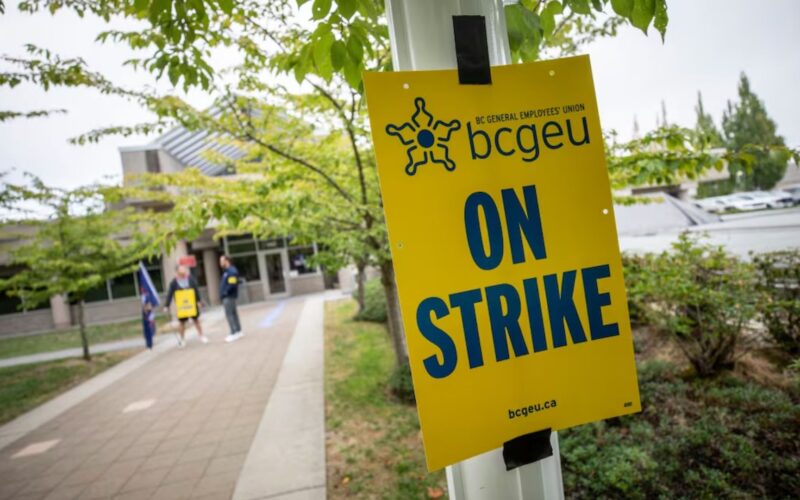Victoria (Rajeev Sharma): Talks between the British Columbia government and the B.C. General Employees’ Union (BCGEU) are set to resume on Monday after nearly two months of stalled negotiations. Despite the renewed dialogue, striking public service workers will continue to picket outside government offices and provincial liquor outlets.
Finance Minister Brenda Bailey confirmed late Thursday that the province’s Public Service Agency extended a formal invitation to the union to return to the bargaining table. Speaking on Friday, Bailey reaffirmed the government’s goal of reaching a fair deal that balances worker needs with the province’s fiscal limits.
“We remain committed to achieving a fair agreement that supports workers while maintaining our fiscal plan,” said Bailey. “It’s encouraging to see both sides returning to the table.”
Union president Paul Finch addressed members at a rally outside the Royal B.C. Museum in Victoria on Friday, announcing that the government approached the BCGEU with what was described as an “enhanced” proposal. Finch said he pushed for talks to restart over the weekend but was told the earliest possible meeting would be Monday.
“My message to the premier is clear: come to the table with something real,” said Finch. “Let’s resolve this.”
Tensions Rising Amid Ongoing Strike Action
Since talks broke down in July, the BCGEU has ramped up its strike efforts, with around 15,000 members participating in rotating job actions. Picket lines have been established in front of key government buildings and approximately one-third of provincial liquor stores. Additionally, key distribution warehouses in Richmond, Delta, and Kamloops remain behind picket lines, impacting the supply of liquor and cannabis across the province.
The union is pushing for an 8.25% wage increase over two years, citing the rising cost of living and stagnant wages. The government, however, has signaled that its financial constraints will limit what can be offered.
Eby: “We Must Be Creative”
Premier David Eby, speaking Friday at the Union of B.C. Municipalities convention, acknowledged the return to negotiations but cautioned that the province cannot replicate the generous deal reached in 2022 under then-Premier John Horgan. That agreement included wage increases of up to 5.5% and cost-of-living adjustments over three years.
“We’re not in the same fiscal position now,” Eby said. “We have to be creative in how we support workers who are struggling with the high cost of living.”
Still, Eby expressed optimism that a deal can be reached through constructive dialogue, emphasizing the government’s willingness to engage seriously.
“We’ll work hard at the table. I’m hopeful we can find a path forward,” he added.
A Deal Under Pressure
With mounting public frustration, economic disruption, and political pressure, both sides face growing urgency to reach a settlement. Union officials remain firm in their demand for a deal that reflects the realities of inflation and affordability in B.C., while government representatives continue to stress the need for financial prudence.
The outcome of next week’s negotiations may determine whether the escalating labour action continues—or whether B.C.’s public sector can return to business as usual.

